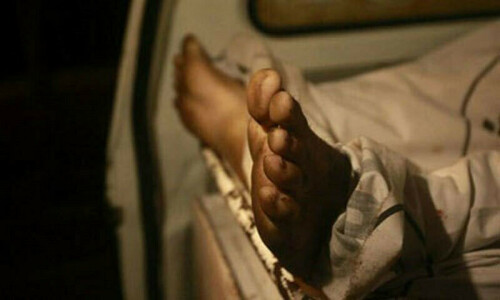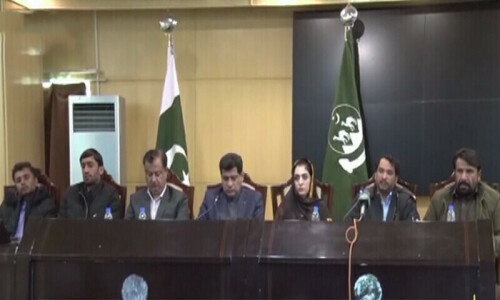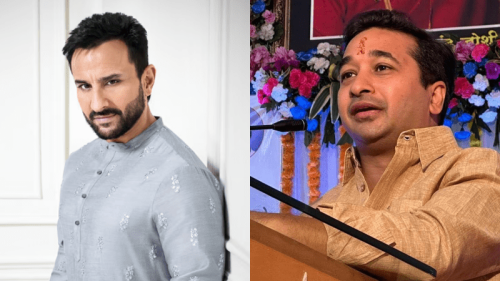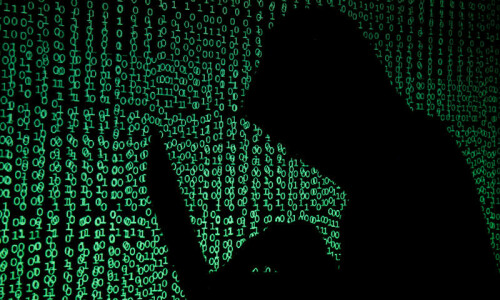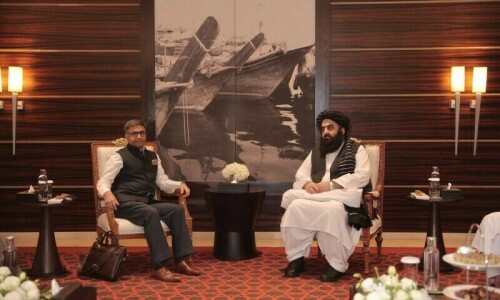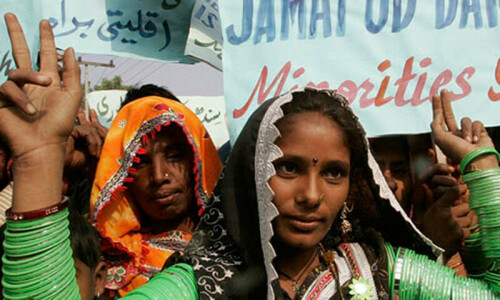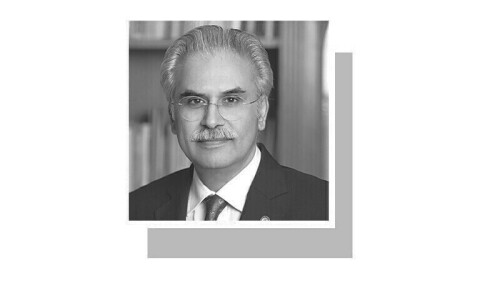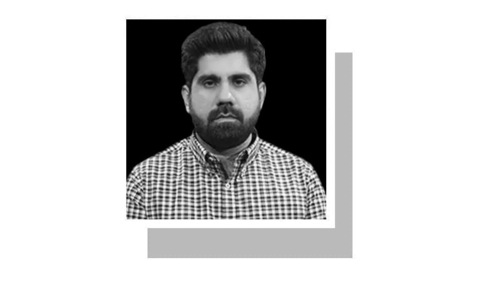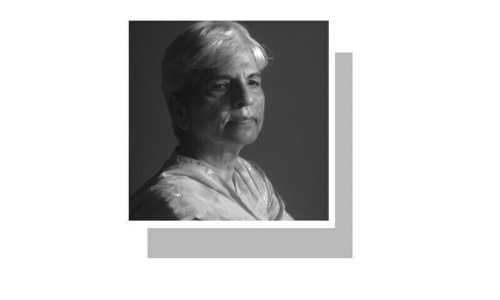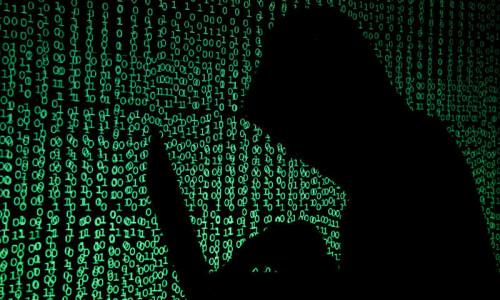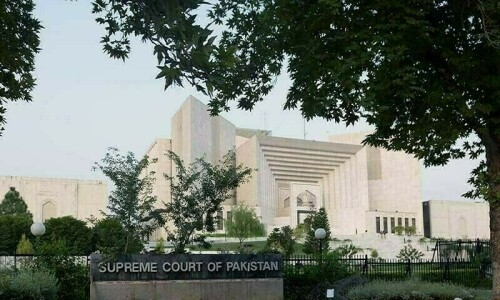ISLAMABAD: Political chatter apart, Prime Minister Nawaz Sharif certainly looked a happy man on Friday, during his visit to the city’s second government school that has been upgraded as part of his education reforms programme.
Large government advertisements in national newspapers, too, have heralded the launch of Montessori classes in federal government schools in Islamabad, declaring that children from low-income households would finally have access to early education equivalent to the quality provided by expensive private institutions.
Renamed after a victim of the December 16 attack on the Army Public School in Peshawar, the Azaan Shaheed Model School in F-8/3 seemed to meet the ambitious promises the prime minister made when he announced his education reforms initiative.
The first of the renovated schools, which would serve as a model for upgrading others in the federal capital, was unveiled in December of last year.
Read: ABCs and geography: Nawaz plays teacher to students at revamped govt school in Islamabad
Khaula Shaheed Model College is now guarded by tall, white and blue boundary walls, topped with barbed wire.
Crossing the heavy metal gates, one steps into an airy veranda that runs around well manicured grounds.
The walls of the college are plastered with educational posters and the college has been equipped with a biometric attendance system. The institute was given 20 Dell systems for its IT lab and a science lab has also been installed which will cater to all the three science subjects taught at the institute, including Biology, Chemistry and Physics. Supplies of chemicals, laboratory apparatus and biology models have been stacked into the new storage units.
Experts question commitment to teacher training, curriculum reforms
When inaugurating the upgraded college, Prime Minister Nawaz Sharif had announced reform initiatives for public educational institutes and had vowed to provide them with the ‘best’ facilities to ensure every child receives quality education. In the first phase of the reforms, 21 schools will be upgraded as model institutions.
But is all of this enough to bring about ‘concrete’ changes to the public education system?
The college’s principal, Tasneem Sami, said infrastructural changes will not make a difference until the curriculum is changed to bring it at par with that of private institutions and teachers are then trained to teach the new curriculum.

“Those are the most important parts of the reforms. If the government aims to really make a difference, it will have to draft a curriculum that is not just result oriented. The curriculum now does not engage students, does not inspire creativity and does not allow students to think,” Ms Sami said.
But these are the two areas that no one seemed to have concrete answers to. No one was able to say what the new curriculum will be like and how teachers will be trained to teach it.
Though the prime minister said steps will be taken to change the curriculum and that capacity building measures will be adopted to improve the skills of the teachers, he did not announce a timeframe for all these measures.
Secretary of the Ministry of Education and Professional Training, Hassan Iqbal said it is too early to say how the new curriculum will look like and that changes like these take decades to make.
He added that a National Curriculum Council has been formed and that ads will soon be published to provide the council with the right people to draft a new curriculum.
He explained that guidelines from the prime minister will be handed to the council and the provinces will then devise the best way to draft a curriculum. These guidelines will include religious and cultural tolerance, for rote learning to be eliminated, for problem solving to be introduced and for the exam process to be revised, Mr Iqbal detailed.
“For these changes to take place, we have to be cautious. We don’t want the provinces to think we want their powers back. This is a devolved subject and we cannot bind the provinces to it”, he said.
But how can one expect the provinces to make substantive changes when it has been six years since the devolution of powers and they have not yet made major changes in their curriculums, asks Peace, Education and Development (PEAD) executive director Samina Imtiaz.
Ms Imtiaz added that the only changes the provinces make are in line with the political views of the party in power at the time. For example, she explained, the Jamaat-i-Islami added two chapters about Jihad in the textbooks, which the previous government had taken out.
The ANP government on the other hand had included material on Bacha Khan, according to a summary of a yet to be published research by PEAD.
For this reason, Ms Imtiaz suggested, the government needs to bring about lasting reforms that will not change every time the government does and that it will have to make the council representative of the provinces and de-politicise it as well.
She said the provinces should also be directed to empower their respective departments to make decisions and officials of these departments should be included in this council.
The other major area of reform, as pointed out by Ms Sami, is of teacher training, for which the principal said two sessions have already been held and that further sessions have been promised for the summer holidays.
This was confirmed by an official of the Capital Administration and Development Division (CADD) who added that schedules for the training programmes were being drafted.

Experts from other government departments and NGO’s along with teachers from Roots and Beaconhouse School System are helping to the training sessions, she said.
Other than teacher training, Amir Riaz who researches into curriculums and has authored a book on the subject, suggests a system for teacher monitoring should also be introduced.
He said promotions should be linked to performance and not to seniority, as is done now.
He suggests looking back at the Shareef Report of 1959 which advises that teachers should be given sabbaticals for research and that they should be promoted based on the quality of research.
When asked, Federal Directorate of Education (FDE) director general Moinud Din Ahmed Wani said as part of monitoring teachers, a data base of sorts was also being developed for storing teachers’ numbers and that the department will be engaging with a telecom company for the same purpose. He added that a grievance cell for parents and general complaints will also be formed.
To facilitate students, another FDE official said a bus system was being devised, which will pick up students from their homes and take them to the nearest metro station, from where they will travel to the metro station closest to their school. From there, another bus will transport them to their school.
To this Mr Wani said it was too early to know for sure how the bus system will look like. For now, he said, a normal pick and drop system will be provided.
When asked if the government was serious about bringing reforms to the education system, human rights activist Tahira Abdullah termed them a “cosmetic facelift, paint job and more for show and tell than a real change”.
She said for bringing about lasting change, the government will have to do more than just infrastructural alterations. It will have to set aside a specific budget- she suggests four per cent of the GDP- for allocating to the education sector, will have to draft a curriculum that promotes peace and tolerance. It will have to release students and teachers from the bounds of test preparation and give them more freedom to explore project based education.
Also declaring them “superficial, cosmetic” changes, Ms Imtiaz waved aside the reforms as “the kind of pledges governments make just to fulfil international obligations and give ambitions figures for that purpose”.
The PEAD executive director said she will believe the government is serious about the reforms if, after they were done, the politicians who made these promises or the heads of the government departments responsible for bringing them about are confident enough in the public school system to enrol their own children in them.
Published in Dawn, February 20th, 2016
















